The Guardian newspaper revealed they had seen internal English FA documents that confirm the following decisions related to futsal;
- “remove all futsal national teams and staff” – This is men’s seniors, u21s and u19s (Women’s seniors were supposed to have started last year according to target set in 2018 but there had been no movement on this)
- Total FA Funding for futsal to be slashed from £900k to £125k annually which would only meet minimum annual contractual obligations in a sponsorship agreement with Pokemon (seems they wanted it to be zero)
- The documents includes the reason for these decisions being “futsal has only a “limited link” to the ambition to win a major 11-a-side tournament“
England, the richest national association worldwide, will now join the Faroe Islands, Iceland, Liechtenstein, Luxembourg and Ireland as the six nations across Europe that don’t compete in FIFA and UEFA’s official futsal competitions. In 2018, the English FA released a futsal strategy that targeted being a top 20 nation worldwide by 2024.
As well as the impact on the top level of futsal in England, the funding cut will severely affect the grassroots provision across the country. This is a sport popular in inner cities that FA data showed, less than a year ago, particpation had doubled in one year.
They have gone from allocating an already tiny one fifth of one percent of their turnover in a normal year to futsal to one twentieth of one percent. That’s from 0.2% to 0.03%. When cuts need to be made, as is common, it is those already struggling and with the least powerful voice that bear the brunt of the pain.
The English FA’s previous stated that futsal has “increasingly become an integral part of the football family” which seems to be contradicted by these developments.
Reflecting on English Futsal
This current moment for English futsal is very painful and sad. In these emotional times I feel it would be a mistake to give my opinion on the immediate devastation this will cause or the urgent short-term action that needs to be taken to try to reverse these decisions. The futsal community will come together to take care of that over the coming days and weeks.
I am going to step back and analyse what has led to this situation occurring as it lies in a long-term underlying cause rather than short-term circumstances. It is a sudden outcome from trends that had finally reached a tipping point.
We need to identify the chronic and root causes that go beyond the acute impact of the English FA’s need to make savings. It is critical to formulate the long-term solutions to avoid getting back on our feet and then experiencing a reoccurence of what is happening now.
By doing this I hope that when there is a recovery, there will be a change from the past and English futsal can become stronger than ever.
My conclusions are based on experiences, observations and conversations over nearly 15 years in the sport across many countries. I am sure there are many differing views out there and this is just my contribution to the debate.
I am very much keen to learn from others’ perspectives, whether they support or differ from my own. If you would like me to see them then please post in the blog comments at the bottom as it is easy to miss comments on social media and it doesn’t provide an effective platform for a considered discussion.
Finally, I believe this analysis will be relevant to other countries in the initial stages of their futsal development. I hope the lessons here can help them avoid suffering the same mistakes and lost years.
Futsal In England Until The Present Day
The English FA’s involvement in futsal begain when the national team debuted in 2003. It came after FIFA’s efforts to take control of the sport from its existing international governing body. I’ve been witness to futsal’s development in England since I discovered this amazing sport in 2006.
Participation, mainly amongst children, and general awareness of the game in England have grown enormously. With an expanding player pool and growing experience, the national team results have improved without yet getting near to qualifying for a major tournament.
The England team’s improvement has been hindered by a lack of development of the top tier national league, which isn’t too unrecognisable from 12 years ago when it was formed. The English FA has had a lot of success in gaining a wide reach in futsal coach education, with it said in 2018 that around 3000 futsal courses were taking place annually.
A significant milestone seemed to have occurred in 2018 when the first ever strategic plan dedicated to futsal was launched, covering the period up until 2024.
At a general level it’s ambitions appeared modest as it stated its objective was to make futsal “England’s indoor game of choice”. Aiming to be the leading indoor sport in a country dominated by outdoor pursuits presented a limited view of its potential in my opinion.
However, in the detail, in terms of actions and targets, it was hugely aspirational and promising. It exuded confidence as this quote highlights;
“…we are no longer talking about Futsal (sic) becoming a key component of the game in England – we’re going to make it happen.”
This raised hopes but it was the phrase in the opening paragraph of the strategy that would prove to be the one we should have paid the most attention to;
“words are meaningless unless day-to-day action brings them to life.”
Approaching halfway through its 6 year scope there have been some real bright spots including a fund offering small grants, a major sponsorship deal and futsal being added to the activity list for GCSE & A-Level physical education qualifications in schools.
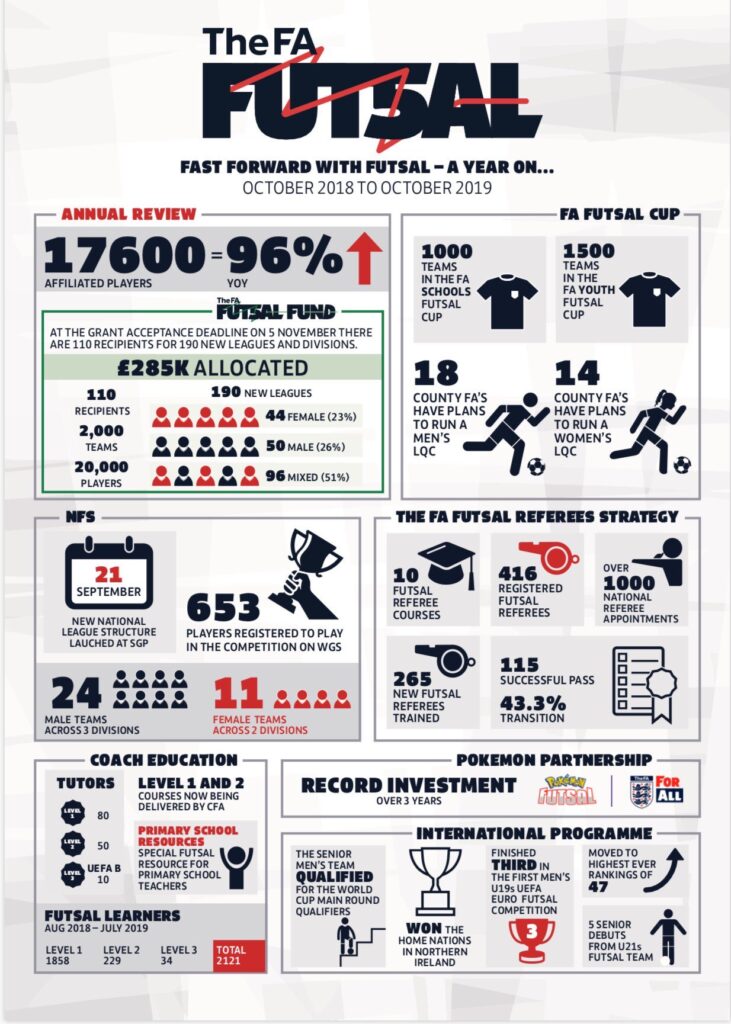
However, overall the results have been underwhelming as it has been a case of targets missed and actions not implemented. And now it seems dead in the water which suggests it lacked the necessary support across the organisation to bring it to life.
It would be a mistake to think futsal in England wasn’t without its problems before this current situation and it has never had sufficient funding to really fuel its growth. It has just exposed and magnified the underlying and enduring problems. This mini-documentary, “Futsal: The Forgotten Game”, highlighted some of them back in 2016.
Although there is a passionate and dedicated futsal community and the game has a viral nature, there has been a failure of the required leadership to produce significant progress over nearly two decades.
Futsal Through The Eyes of Football
Throughout this time the strategy adopted in the English FA, both internally and externally, has been to promote futsal in relation to football, rather than as its own sport. As in the recent strategy, the English FA most often refer to it merely as a “format of small-sided football”.
This ‘football-focused’ approach has been built on top of the foundation that futsal helps the development of football players. The English FA’s ‘Benefits of Futsal‘ document sums up the approach;
“FIFA, UEFA and The FA are keen to support the development of futsal for a number of reasons, but primarily for the recognised benefits that futsal offers for the technical development of football players.”
Instead there could have been a focus on futsal’s real value; Putting the emphasis on how incredibly engaging and captivating it is to participants and audiences.
This would not exclude promoting futsal’s benefit to football players but it would remain in the background in order to allow its more compelling qualities to take centre stage. I provided an in-depth explanation of this in the previous post “The Misconception of Futsal”.
With the lack of progess in building the futsal landscape, the football-focused approach can only be concluded to have failed to deliver.
The question is why did it fail and why would valuing it as a sport have been more beneficial to its development.
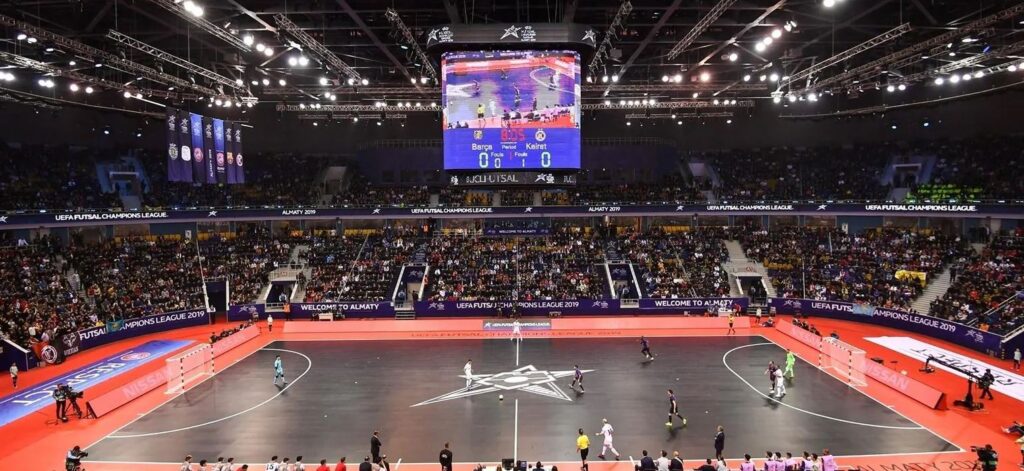
Imposing on Football
Clearly, if you want to attract funding from the English FA you want to avoid futsal being mistakingly seen as a rival to football. This can happen either because futsal is perceived as an activity that is replacing football or money is being allocated to futsal that could have gone to football.
Presenting futsal as a way to develop football players rather than a sport made it more likely that this false belief would emerge.
The people who make the decisions on funding in the English FA all have football backgrounds. Futsal still has no representation in decision-making positions.
By pushing futsal as a football tool it can appear you are trying to muscle in on football’s territory. In contrast, growing a sport would allow football to continue doing their own thing while futsal focuses on adding new growth. This would include growing its commercial revenue to reduce the reliance on taking football’s resources.
UEFA has recognised that in the past the perception of a rival has existed;
“Futsal had long been the subject of misconceptions, often being considered in opposition to football and regarded as competing with its ‘big brother’.“
UEFA added that this view has significantly changed across Europe in recent years. This has happened whilst the continent’s futsal competitions have grown immensely, suggesting the two can exist harmoniously as separate sports.
In contrast to their European counterparts, this incorrect perception has clearly remained a concern for those representing futsal’s interests in the English FA whilst the football-focused approach continued.
In the futsal strategy the term ‘twin-tracking’ was introduced, meaning playing both football and futsal, as well as the previous mentioned ‘indoor game of choice’. These were new additions to complement being a ‘football development tool’.
What these new concepts seem to convey is that futsal in the English FA was having to present the case it was not a rival to football. They communicated that whilst contributing to better football players it would not take participants away from football, only providing complementary participation.
I don’t know whether these attempts have managed to neutralise the incorrect perception of a threat that would adversely affect funding decisions. But, in my opinion, the view was being bolstered by the football-focused approach.
Limiting the Curiosity for Futsal
Not only did focusing on futsal’s ability to develop footballers increase the likelihood of being seen as a competitor, it likely increased the lack of interest in futsal. A tool used as a supplement to football was never going to be seen as of more than limited value.
The FA senior management didn’t attend England men’s futsal matches that were regularly held at St George’s Park. Not yet being competitive with futsal’s top nations wouldn’t have increased the attraction but neither would it prove an irresistable invitation to watch a team that was, apparently, playing a football development tool.
This was a missed opportunity as futsal’s frequent enthralling encounters can quickly convert even the biggest sceptics into the most enthusiastic supporter. This could have changed thinking that would help realise the sport’s potential.
So, with the above two considerations, futsal being a tool for developing football players was only going to justify minimal (and precarious) funding.

Misunderstanding Futsal in Other Nations
The main argument used to prove futsal’s benefit to football players was the examples of countries such as Argentina, Brazil, Portugal and Spain. It was said that futsal contributed to developing their star players to deliver football success and it could do the same for England.
But there was a critical element that was missed from these examples. The success for those countries was not achieved by developing futsal as a way to improve football players, but as a game in itself.
This generated widespread opportunities for youngsters to have regular participation with futsal teams over a period of years.
It was not achieved through football coaches adding the occasional session of futsal or playing a futsal competition in the winter which is the best outcome when futsal is promoted as an add-on development tool.
Possibly, if this had been understood then the football-focused approach could have gained more support for growing futsal extenisvely as its own sport with its own clubs.
It didn’t and funding received had to be seen to be promoting the promise on which it was secured. The current state of futsal in England is a reflection of where the focus has been.
Many professional football clubs utilise futsal in their youth development programmes with the Premier League hosting academy tournaments. Futsal has become widely known as a way to improve football skills and has become closely linked with many of the latest star footballers from foreign countries.
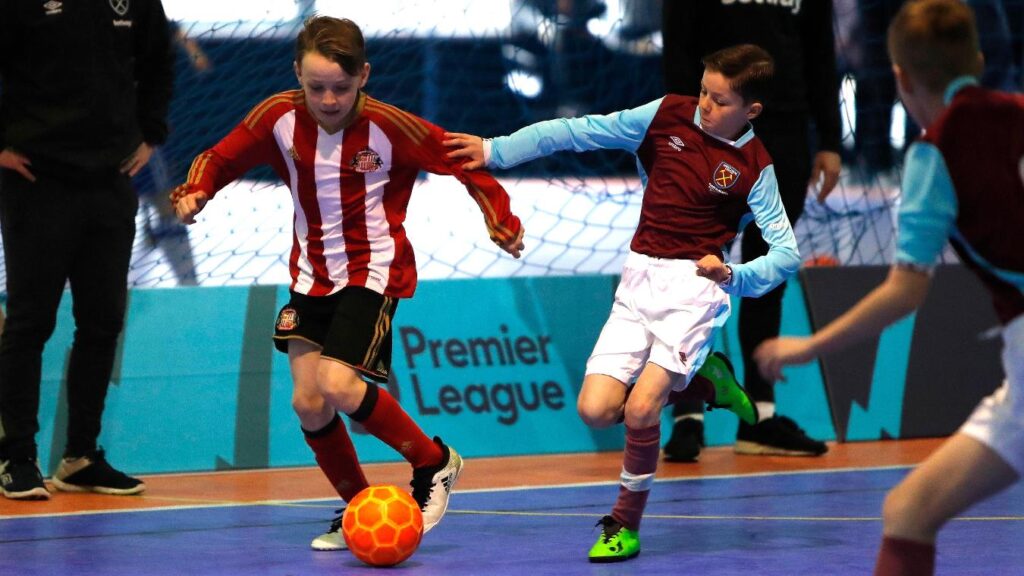
Yet it is little known outside the futsal community in England that it is its own sport with its own stars and prestigious competitions like the FIFA Futsal World Cup and UEFA Futsal Champions League (still only male editions).
The top tier senior futsal competitions in England are closer in resemblance to local amateur competitions than the attractive championships they need to be, lacking basic marketing such as a dedicated website.
Few competitions for youth futsal players exist so they find it hard to have opportunities to compete. This has led to those successes where children become convinced of its merits transitioning to other sports where there is more competition provision.
Where is the evidence of actual futsal development?
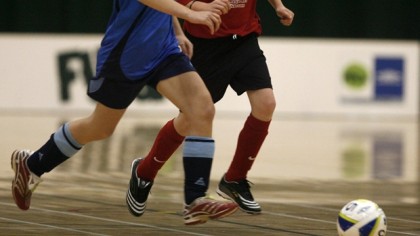
Anything that doesn’t contribute to the aim of producing football players, like top tier competitions or those for youth players without realistic chances of being footballers, has been neglected. Those most dedicated to futsal have seen the least from the money and time invested.
The most stark example of how this approach can lead to actions damaging the game’s development is futsal has been actively encouraging talent to exit the sport to go into football. A key aim of developing a sport is retaining your talent.
So, the football-focused approach only enabled a superficial development of futsal linked to producing footballers. But, for futsal to contribute to producing star footballers, you need the development of a strong futsal eco-system with broad coverage that couldn’t happen under this approach. This leads to the conclusion that the football-focused approach was never going to be able to deliver what it promised.
It seems the decision-makers in the English FA, after 17 years with futsal, have come to the same conclusion and asked themselves where are all these England football players crediting futsal for their development they had been promised.
The Guardian leak revealed the decisions were motivated because they had concluded;
“futsal has only a “limited link” to the ambition to win a major 11-a-side tournament first cited by the incoming chairman Greg Dyke in 2013.”
If your funding for futsal is based on producing top footballers, and that doesn’t happen, then questions are going to be asked about continuing to invest in something that isn’t delivering the returns promised.
And they might, equally, have come to the same conclusions about the need to support futsal when football academies recently started to churn out talent without futsal of any significance in their development.
All those people who love playing or watching the game for other reasons have not had been considered by the decision makers and have not been valued. It is clear from the statement the English FA has only been supporting futsal to produce football stars.
The football-focused approach placed futsal and its funding on shaky foundations.
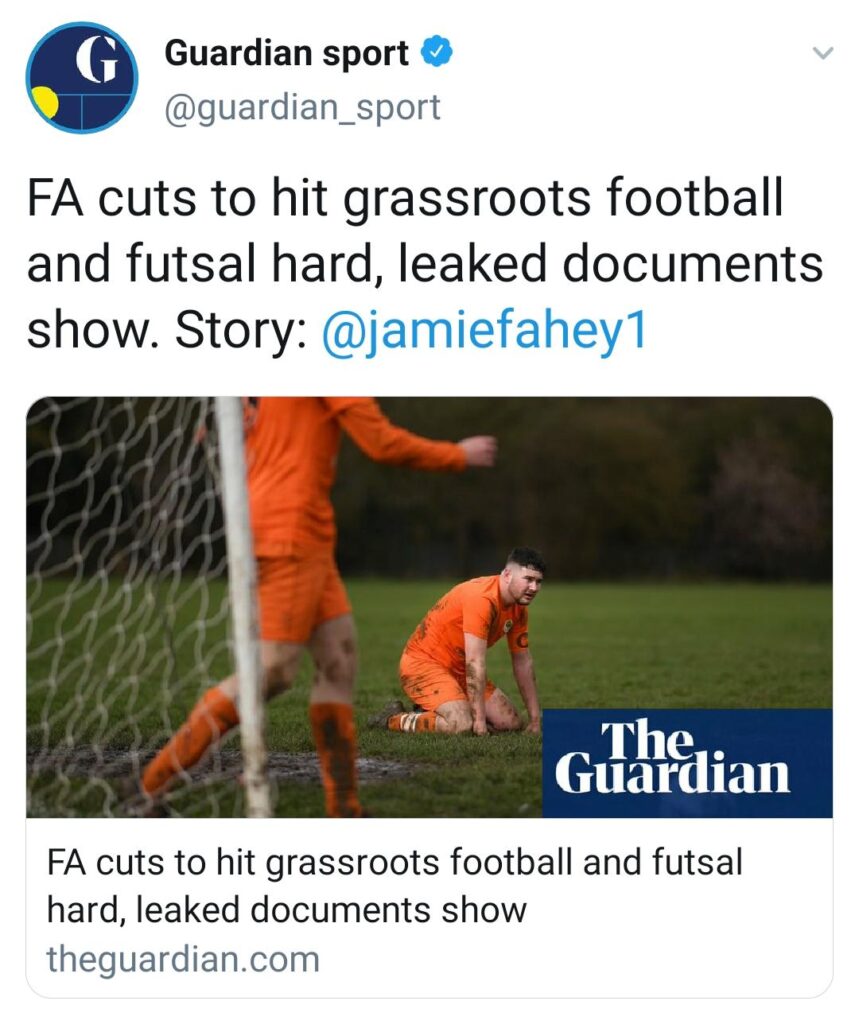
Self-Sustainability
The other problem with not being able to invest in genuine futsal development under this approach was there was never going to be any end in sight to the sport’s dependence on football.
If it had gained funding on building itself as a sport then it could establish a plan to grow the game where it generates its own funds. It could build interest by establishing an attractive brand that is about competitiveness and engagement, rather than a skill tool for youth footballers that is of no interest to spectators.
This would generate revenue that can be reinvested in further development, establishing a self-reinforcing cycle where momentum builds. It would slowly reduce it’s needs on football over time, and thus the need to convince football’s decision makers.
Generating your own funds is the key to growth. It is not a coincidence that the most developed area of futsal in England has been coach education and it was also the only area that generated the revenues to cover its costs.
A Foreseable Failure
This analysis has not relied on the hindsight of the current news and the sport was not in a good shape before it happened. We had long been underfunded and undeveloped.
The issues with the football-focused approach have long been clear.
I have advocated for promoting futsal as a sport in my blog since it started and this view has only strengthened with more time observing the sport across the world from within. Back in 2013, on the very first post I wrote for the blog, “Do futsal and football need each other?“, I covered the same topics;
“If the only reason to invest in futsal is because it is hoped it will create the next Messi, will it provide the sustainable impetus and momentum needed to develop and grow this sport? Football might just move on to the next ‘magic pill’…in England some people now know the name but not the sport. They think it is doing skills with a heavier ball, a football coaching tool or even table football! Does this type of promotion create the kind of attention and image we want? Would we see articles about futsal in the mainstream media, like the one on the BBC, if the link with football wasn’t mentioned? Will we always be seen as football’s little brother, limiting our possibilities?”
And went on to conclude;
“My personal view is that we should use the benefits to football that futsal offers as a way to promote the game. However it should not be the main selling point of this sport. When raising awareness of futsal we should first describe the characteristics of this fast paced and dynamic game and how it is fun to play and exciting to watch. Let’s talk about the great tournaments we have, such as the FIFA Futsal World Cup and [UEFA Futsal Champions League], or the amazing abilities of the best players in our history such as Falcao or Paulo Roberto. Afterwards we can highlight how it has benefited many of the best footballers ever produced.”
And two years ago in “The Misconception of Futsal” I ended the post by cautioning about the impact this approach was having;
“Of course, we’re all entitled to view and use futsal as we wish but I strongly contend that not emphasising it as a sport does it a cruel disservice and is to the detriment of its long-term development.”
With the new futsal strategy there was a recognition with the idea that futsal needed its own identity. A powerful presentation by academic Jon Sibley around the importance of identity during the formualtion of the strategy influenced this.
But the overall approach did not, or could not, be changed, as the opening page of the futsal strategy referred to it as “the exciting small-sided indoor format” and that confident quote about its future saw futsal as a part of football by “becoming a key component of the game in England”. Futsal was still characterised through the lens of football.
Being at the apex of the sport, the governing body is an easy target for criticism but we have to admit they have not have not been alone in adopting this approach.
There are long established futsal academies and clubs that should have known better but still focused their marketing around futsal being a football development tool without a mention of it’s qualities as a sport.
Putting a Messi picture or quote on the poster may grab the eye but kids playing futsal for an extrinsic reward, rather than the intrinsic joy, are less likely to have a long-term committment if that is what you’re after.
Time For A New Beginning
The mistakes of the past must become lessons for the future. It is now almost indisputable that futsal needs to be principally promoted and developed as its own sport, independent of a relationship with football.
This is happening with success in European countries that have become emerging futsal nations but were at a similar stage to England in the recent past. Examples include France, Germany and Sweden.
Germany is due to launch their Futsal Bundesliga next year. France has created a platform that is facilitating the accelerated development of its clubs and national team with large TV audiences. Sweden is providing financial incentives to develop its futsal clubs and it is the fastest growing sport in the country.
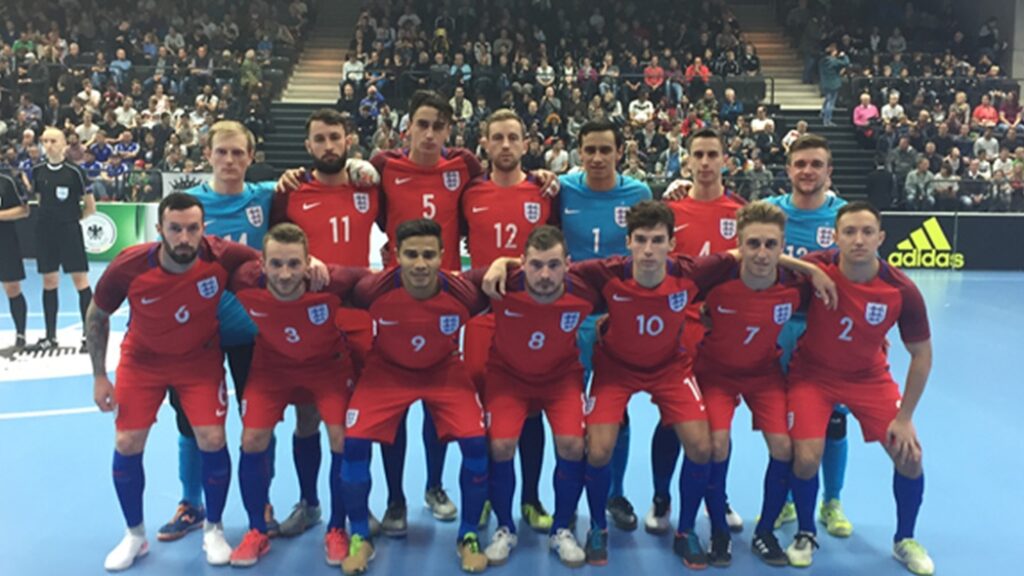
UEFA, the governing body for Europe, changed their strategy from a football development approach to being its own sport with the appointmnet of Aleksander Ceferin as President in 2016.
This is producing success with both their club and national team competitions recording huge growth and rapidly growing interest. UEFA’s President covered this in the 2019 UEFA Futsal Champions League Finals Official Programme;
“European futsal can envisage a bright future as UEFA’s new strategy for the sport starts to have a significant impact. Important decisions taken by UEFA for the club and national team game are enhancing futsal’s status and strengthening its appeal – and the signs are particularly promising for the club game on this continent…We have no doubt that the strategic changes will raise futsal’s standing and, in particular, reinforce public awareness of European club futsal.”
Build Back Better
Futsal needs some freedom from football to allow it to take decisions that are in its own interest. To build its own vision for the sport and have the autonomy to carry out the actions needed to make it into a reality.
Ideally, to get this seperation, futsal would have it’s own subsidiary that is linked to the national association. This would replicate the situation in Brazil where you have the Brazilian Football Federation (CBF) and the Brazilian Futsal Federation (CBFS) both under the FIFA umbrella.
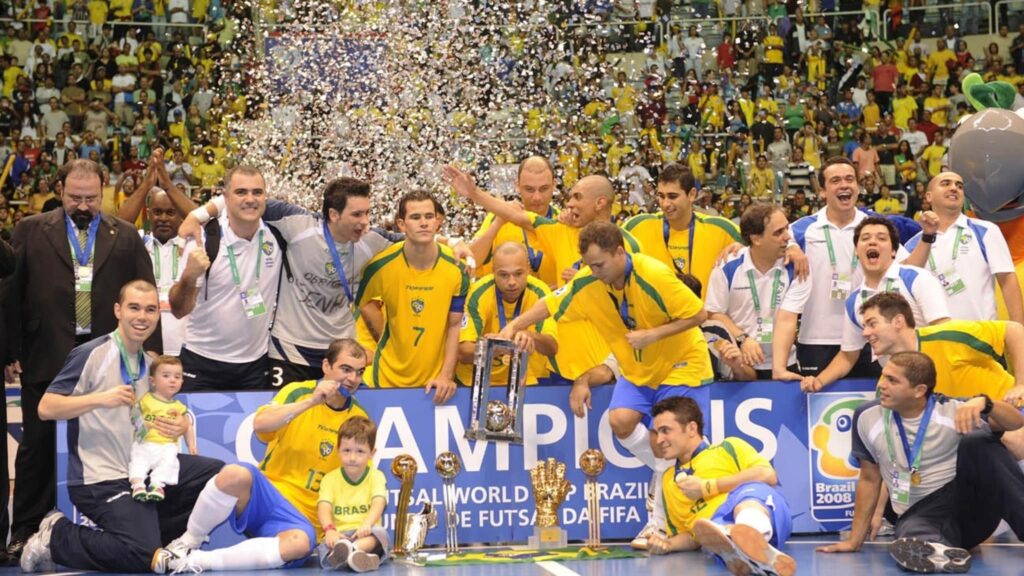
I believe if we adopt the right strategy football can be a help, not a hindrance, and the two can exist together with a co-operative and mutually beneficial relationship.
I still believe, despite today’s news, the English FA can help futsal get some momentum here, especially when state funding is of limited access as it is focused on Olympic sports.
The most important factor for futsal to succeed in England is having a full-time workforce. Before these cuts are implemented, the Finnish FA had four times the number of full-time staff dedicated to futsal in a country with one tenth of England’s population.
Several years ago our respective national teams were similar levels but Finland are now a playoff tie away from qualifying for the FIFA Futsal World Cup while England lost all 3 games needed to get to that stage. Ask the England women’s football team what a World Cup could do for a game’s development.
Adding marketing experts to the team will be key especially for managing the league’s development which has previously depended on altruistic volunteers. They have the capabilities to build a commercially successful leagues.
Further, they will face the tough task of changing the public perception of futsal to overcome the legacy of promoting the sport as a football development tool over so many years.
The league’s development is vital with competitions, as well as the national teams, where non-Olympic sports generate their funding from. The potential interest is there in England.
I played for the national team when we attracted around 1500 fans on two consecutive days for friendlies against Sweden back in 2015 with almost no promotion or marketing. Not even a poster put up anywhere in the venue.
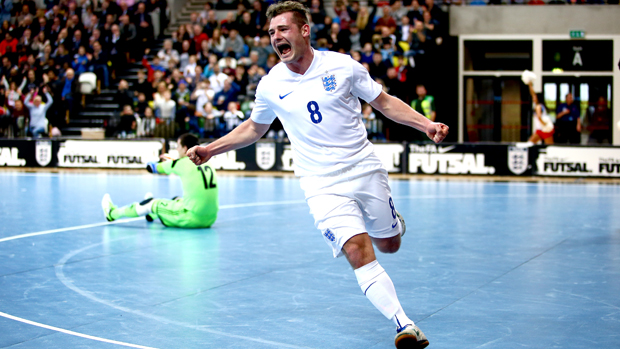
There needs to be a restart, working with stakeholders to build clubs’ communities and academies that will attract fans to games and provide the resources for their growth. This is the first focus for generating revenue in the league as without strong attendances you have nothing of value to offer sponsors and broadcasters.
Identifying what needs to be done is the easier part. It will no doubt be challenging to make futsal self-sustainable and establish a profitable league but it is achievable in the long-term.
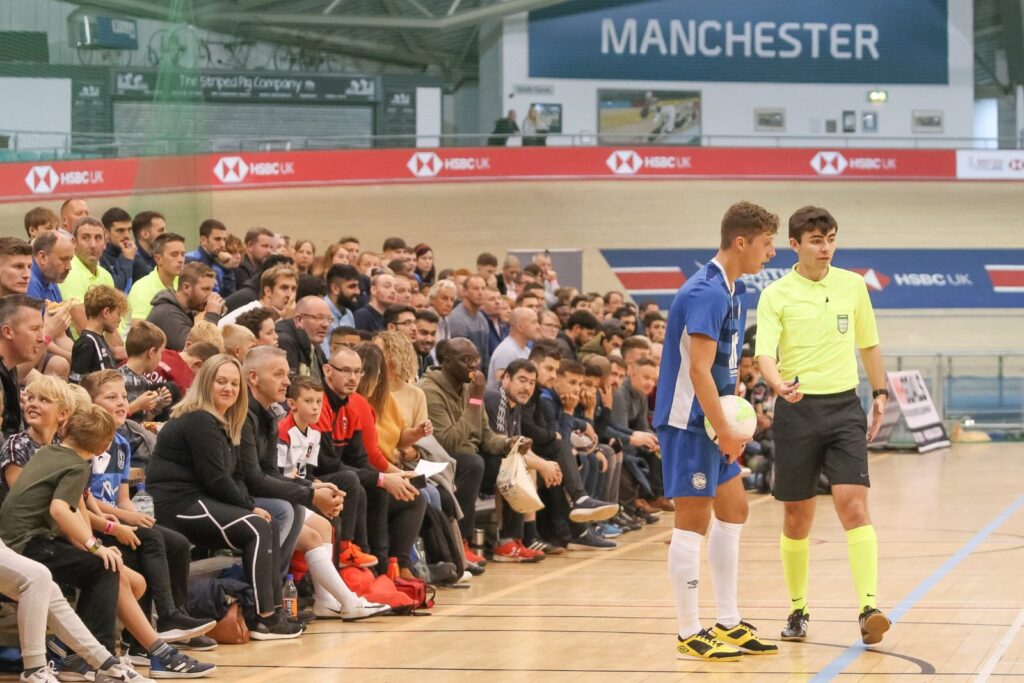
We can look at the example of football’s Women’s Super League which took a decade from formation to attracting significant sponsors, broadcasters and investors. That timeline was achieved with significant investment and media coverage, including support from Premier League football clubs and the English FA, driven by a campaign against gender discrimination.
External investment will need to be high initially with little revenue currently being generated. This requirement is just the same as with most startup companies.
This news means the English FA look unlikely to help in the short-term. But, if things do improve, the approach will have to be for developing futsal as a sport. It is much harder to convince the English FA over those in Europe where they are investing in futsal.
On the continent they understand futsal’s potential as a sport which is why they have developed futsal better than in England. A key difference is they have multiple references for hugely popular indoor sports such as basketball, handball and volleyball.
England’s generally mild climate means outdoor sports are played all year round and their indoor counterparts have not been as necessary. Therefore, they are less developed and there is no record of professional or commercially successful leagues. This means there is few indoor arenas that can accommodate spectators currently which is a major obstacle for futsal’s development in England.
Still, there is a possibility the English FA could be convinced to reverse their decision on futsal with the return of funding once the worst of the pandemic passes. Though any funding would remain vulnerable to future cuts again which is why self-sustainability must be the a priority.
A Bright Future
Futsal is super resilient and its growth in England will continue over the longer term. Increasing competition for people’s time means activities that are engaging, high intensity and easy to organise are the ones that will succeed. Urbanisation continue to grow with space more scarce and the weather is becoming more erratic.
Futsal is perfectly adapted to succeed in these conditions and will continue to expand. We just need to inject some momentum to accelerate it.
The current situation will bring hard times in the short-term but I believe it offers the potential for futsal in England to become stronger and have a better long-term future. Until now, we have been stuttering along with just enough improvement and hope that dissatisfaction never resulted in change.

What has happened has exposed the issues that have long existed so that they have become undeniable. It is now time for action to implement plans that will effectively drive futsal’s development and popularity.
It would be inexcusable if we fail to take advantage of this opportunity that has been presented to us. We have the power to ensure continued insufficient progress doesn’t mean future generations miss out like today’s.
The future of futsal is in our hands.
#FutsalForAll
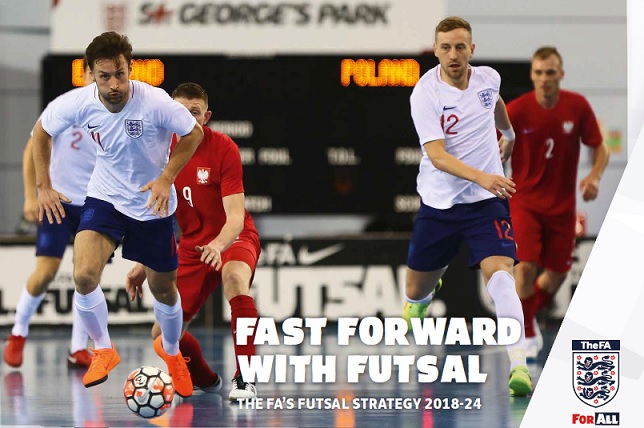
Brilliant insightful and comprehensive article. I agree with the vast majority of this except perhaps the optimistic hope of the FA changing course again in the near future. I understand and appreciate your reasoning but I think in this country a separate NGB could be a better option. We have to rebuild and why not rebuild with someone like AMF who we know want to actually promote the game worldwide?
I am yet to be convinced that an alternative to the FA would be better but completely get where people are coming from who say that. I am open to having my opinion changed. Thanks for the comments John.
It is a very tough call. If I were The FA I would want to off load Futsal and encourage its independent growth in any way possible. It should be an objective for futsal to be self financing which brings with it independence.
It’s just too big of a conflict of interest if the primary source of futsal funding relies directly or indirectly on futsal being a development tool.
With regards to the England teams, if it really is just £300k needed to get the first and u19s to the Euros, that should be within grasp of crowd funding if The FA wasn’t too proud to promote such an initiative.
Thanks for the detailed report on English Futsal. I am writing from Canada and let you know that our state is worse because Futsal is not only governed by Soccer Canada and it’s Provincial bodies but also in competition with 7aside Indoor Turf Game which is dominant in Ontario. Ontario Futsal introduced the game of Futsal in the 1980’s with the help of Brazilians living in Detroit which supplied the rule book plus futsal balls. The balls were size 2 and no bounce. A few years later we joined AMF and participated in their competition by sending teams to South America. We financed all these activities ourselves and ran for 15 year provincial club champions in Ontario. Referees and players were constantly threatened by Ontario Soccer with suspensions which never happened. However it had an impact on the development of the sport. When Canada Soccer integrated Futsal and Beach Soccer into their program we thought things got better. However, those organization were just interested in collection fees and not promoting the game that was left the grass roots. After 40 years Futsal has digressed in Canada because the official bodies no not care about the sport. Soccer treating futsal as a training tool not as a sport in it’s own right. There are a few futsal league operating in Canada but the future does not look promising unless we follow the South American tradition: let youth players play exclusively Futsal until the age of 12 and then switch to soccer if they like to do so. Soccer people running Futsal clinics for referees and coaches which is not helping either.
Thanks for the insight into what has happened in Canada Robert. It is a shame to read about futsal not getting the care and attention it deserves in other places too.
Very comprehensive article.
It strikes me that the biggest strengths of futsal are that it depends on learn able skills and has a fantastic inclusive energy, both of which make it captivating to watch and motivating to play. This lends itself perfectly to young players and the whole youth scene.
Players and clubs take such pride and ownership of the game, but are consistently under The FA’s thumb. Futsal is a game that absolutely belongs to the players and the best teams have the highest levels of player investment.
No ‘Governing Body’ would decimate its elite teams without so much as a nod towards getting broad input as to how a better path could be found. I think The FA completely missed some of the biggest potential in Futsal by forcing it to be seen as a development tool. This in itself is enough to guarantee failure.
There is a risk though as is often the case, that petty differences between factions within the sport stops it from developing. A strong, broadly supported governing body, having the success of the game and playing opportunities at all levels as its priority is a must. You can’t buy success, but with futsal you don’t need to. It earns its own success as long as it gets the chance.
Can’t disagree with anything there. Thanks for the comments!
In some recent media coverage, I see national futsal teams reffered to as Elite Sport, but elsewhere I hear that Futsal is not officially recognised as elite.
Without The FA’s commitment to have Futsal recognition put in place, surely under most recent Covid rules, no teams will be allowed to train or play indoors.
Can a ‘Governing Body’ be this hostile towards the sport it is supposed to represent and still have the credentials to carry on in that role?